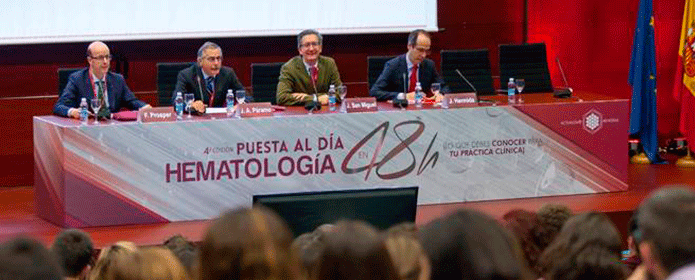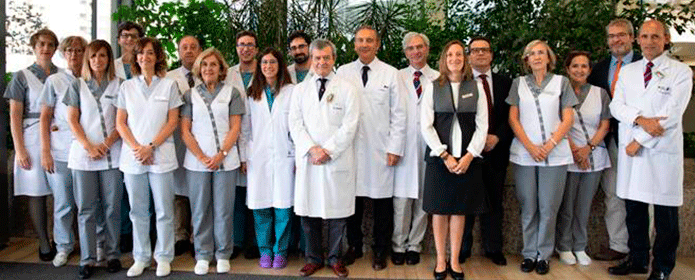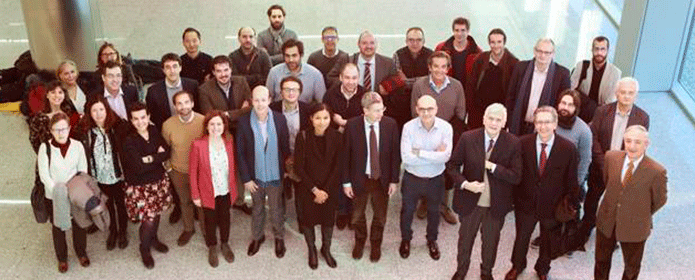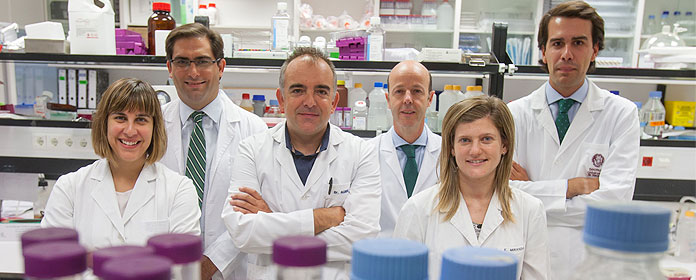Up to 85% of patients treated with immunotherapy present some subject of secondary toxicity.
Fifty specialists of the Clínica Universidad de Navarra have elaborated the first guide in Spanish for the management of toxicity generated by the use of immunotherapy drugs.
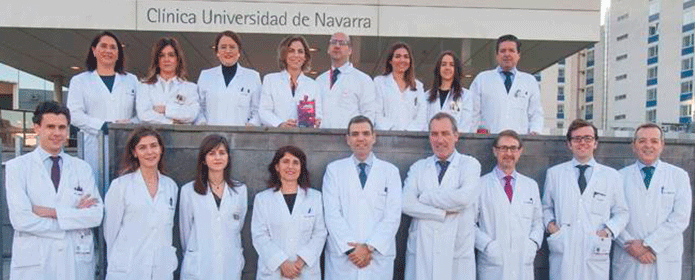
It is estimated that around 30% of cancer patients are currently treated with immunotherapy at some point in the course of their disease. However, this figure is expected to double in a few years. Of these, a majority - between 40 and 60% - suffer from melanoma and between 10 and 30% have another subject of tumors, mainly lung cancer, according to data recent reports from the Spanish Society of Medical Oncology(SEOM).
The mechanism of action of immunotherapeutic drugs is based on harnessing the body's natural immune response to attack and destroy cancer cells. Due to the efficacy they have demonstrated in certain tumors and the growing knowledge of their potential, immunotherapy has experienced in recent years an enormous development as a therapeutic tool . However, in order for its use to be as efficient as possible, it is also important to be aware of the side effects it generates in some patients.
Specifically, it is estimated that up to 85% of patients treated with immunotherapy using monoclonal antibodies present some adverse effect subject and up to 25% of these toxicities can be serious and even life-threatening.
On this occasion, fifty specialists from the Clínica Universidad de Navarra have participated in the elaboration of the 'guide de Inmunotoxicidad. Diagnosis and management of side effects associated with immunotherapy in Oncology'. This is the first guide in Spanish for the early diagnosis and advanced management of toxicity generated by the use of immunotherapy.
This is the first time in the world that an academic document on this clinical problem has been published on Spanish , with the participation of experts from different specialties. The 'guide de Inmunotoxicidad', edited by EUNSA, contemplates more than 50 different entities of adverse effects that can arise in some patients as a consequence of the use of immunotherapeutic drugs or adoptive cell therapy that are currently in clinical use C.
goal of the guide"The goal of the work lies in providing the staff physician with practical recommendations to diagnose and treat these side effects to which we were not accustomed until now and whose prevalence will increase significantly over the coming years," explain the coordinators of the guide, Drs. Leire Arbea and Eduardo Castañón, and Dr. Ignacio Gil Bazo, specialists in Medical Oncology and co-director of the same department of Clínica Universidad de Navarra, respectively.
internship In spite of the recent expansion of immunotherapy as one of the main tools against cancer, academic community did not yet have a document that would include, in depth, both the early detection of the possible side effects of this line of treatment, as well as its adequate approach and therapeutic approach multidisciplinary.
"In recent years, immunotherapy has become part of the therapeutic arsenal in the oncological treatment of many types of solid and hematological tumors. The results obtained with these drugs have meant a paradigm shift in cancer treatment, but it is necessary to be well aware of their possible adverse effects and how to treat them effectively," remind the coordinators of the guide.
Approach multidisciplinaryIn fact, the experts warn that "the use of these drugs is related to the appearance of numerous immune-mediated pathologies that can compromise overall survival, as well as the quality of life of patients". For this reason, they consider it "essential to have an approach multidisciplinary in which different specialties can establish points of meeting with the oncologist and the hematologist in order to develop the best therapeutic approach for our patients".
The main complications that can arise as a consequence of the use of immunotherapy involve several medical services. Thus, the fifty or so physicians from Clínica Universidad de Navarra who participated in the preparation of this Issue are specialists from the following Departments: Anesthesia and Intensive Care, Biochemistry , Cardiology, Dermatology, Digestive, Endocrinology, Pharmacy, Hematology, Hepatology, Immunology and Immunotherapy, Nephrology, Pneumology, Neurology, Ophthalmology, Medical Oncology, Radiation Oncology, Radiation Oncology and Rheumatology.
Most frequent complicationsIn addition, the nature of the adverse effects can range from mild to very serious and potentially fatal. Among the most common are pneumonitis or inflammation of the lung that makes breathing difficult; colitis, intense diarrhea that can lead the patient to a severe state of dehydration; skin toxicity and endocrinological alterations, fundamentally those related to the function of the thyroid gland (hyper- or hypothyroidism).
Potentially more serious, although less frequent, include cytokine storm, a very severe immune reaction in which patients must be managed intensively in the ICU, and acute myocarditis, some of which also require advanced management in the ICU because they can lead to cardiac arrest.
"These are issues that the specialist must know very well. He or she has to know what to suspect when faced with certain symptoms in patients receiving immunotherapy and how to adequately treat each of the adverse effects. The clinical and analytical parameters that can lead to the diagnosis of this toxicity can be found at guide ," say the coordinators.
Edition and print runThe guides are presented in a pocket-sized edition, easy to handle in the day-to-day work of physicians, in a very practical format, equipped with tabs that facilitate quick access to each section to be able to make the necessary consultations. "They are designed for clinicians, both in Oncology or Hematology and other specialties involved in the diagnosis and treatment of these complications, as well as for emergency department specialists who frequently receive critical patients for this toxicity subject and must know how to manage them", say Drs. Arbea and Castañón.
With a total of 222 pages, the first edition -only in Spanish- has had a print run of 2,000 copies that will be distributed both in Spain and Latin America and is also available for sale on the EUNSA website.
Dr. Ignacio Gil Bazo concludes that "this document was a necessity because one of the most important problems presented by the use of immunotherapy is the difference in toxicity with respect to that caused by other more conventional treatments in the management of which there is much greater experience, such as chemotherapy or therapies directed against certain genes. Furthermore, although these treatments or immunotherapy may cause the same adverse effect, since the mechanism by which the toxicity occurs is very different, the treatment also differs radically".

